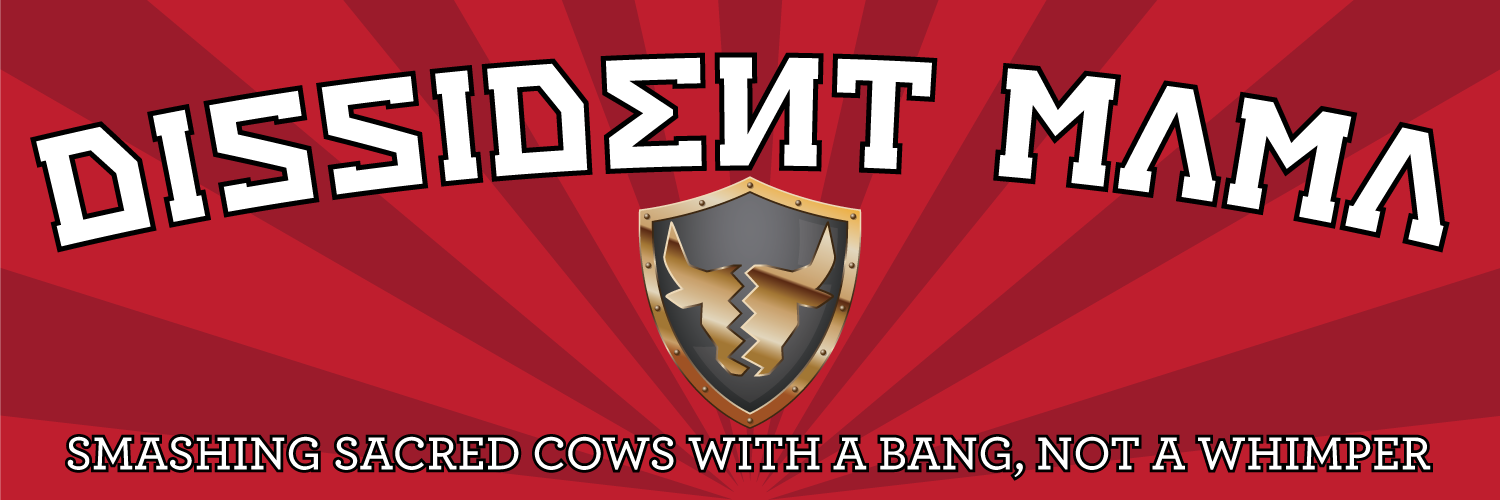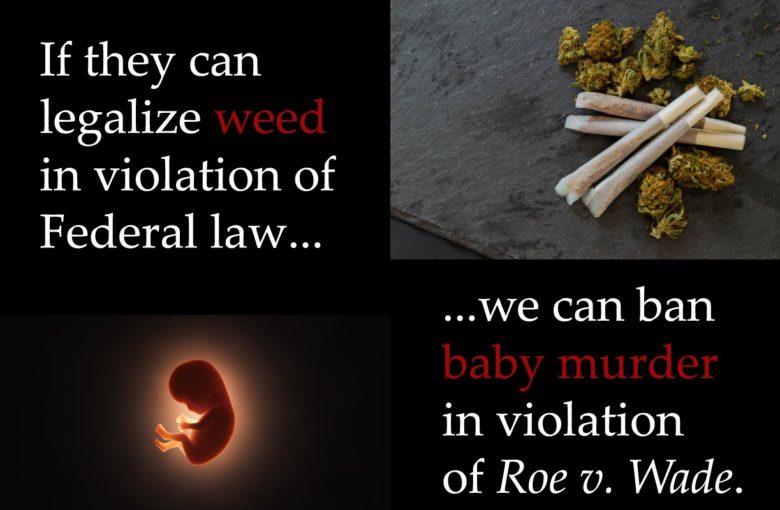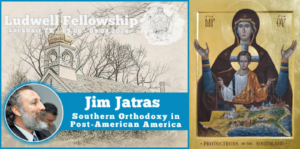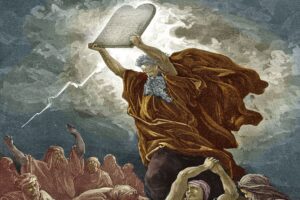“Acts of congress, to be binding, must be made pursuant to the constitution; otherwise they are not laws, but a mere nullity.” — St. George Tucker
“There is no danger I apprehend so much as the consolidation of our government by the noiseless, and therefore unalarming instrumentality of the Supreme Court.” — Thomas Jefferson
As a pro-life Jeffersonian, I am constantly frustrated by the endless line of pro-life activists who talk about the Supreme Court overturning Roe v. Wade. There are multiple reasons this irks me. For one thing, the Supreme Court will never overturn Roe because its members are dedicated to the preservation of precedent. Add on top of that the absurd kangaroo courts that Senate confirmation hearings have become, with their character assassinations and incessant prattling about the vital importance of Roe, and it’s clear that the potential Justices are being reminded not to tread on that particular landmine if they wish to be confirmed. The brutal character assassination of Robert Bork is ample evidence of this, as are the farcical witch-hunts against Clarence Thomas and Brett Kavanaugh.
My other objections to this pro-life reliance on Federal Courts are constitutional and practical. To begin with, accepting the Incorporation Doctrine (the legal justification for Roe and its descendants) means accepting the idea that the 14th Amendment incorporates the Bill of Rights against the State governments, including the implied right to privacy and the subsequent right to obtain an abortion. The legal and historical problem with this is that the Bill of Rights was never intended by the Founding Fathers to be applied to the States. There were two primary arguments against the Bill of Rights. The first of these (advanced by men like Roger Sherman, Hugh Williamson, and Theophilus Parsons) was that, since the States already had their declarations/bills of Rights, and since Congress had been given no authority to infringe upon them, a Federal Bill of Rights would be redundant and unnecessary, and might even undermine the sovereignty and authority of the States.
The second reason for objecting to the Bill of Rights had to do with its length and scope. Enumerating all of the rights protected would be impossible, and therefore would result in an implied surrender of whichever rights they forgot to explicitly protect in the Bill of Rights. Moreover, why say that the government can’t do something (like restrict freedom of speech or the press) if the government hasn’t been granted that power to begin with? (James Wilson and Alexander Hamilton presented these arguments; Hamilton’s is easily found in Federalist Essay #84). This second argument was the reason for the addition of the Ninth Amendment, which reads as follows:
“The enumeration in this Constitution, of certain rights, shall not be construed to deny or disparage others retained by the people.”
James Madison actually proposed an amendment incorporating the Bill of Rights against the States; the amendment was voted down. The original preamble to the Bill of Rights also makes it clear that the Bill was intended to apply solely to the U.S. government, not to the States:
“The Conventions of a number of the States, having at the time of their adopting the Constitution, expressed a desire, in order to prevent misconstruction or abuse of its powers, that further declaratory and restrictive clauses should be added: And as extending the ground of public confidence in the Government, will best ensure the beneficent ends of its institution.”
In what was arguably the only Supreme Court ruling he ever got right (Barron v. Baltimore 1833), Chief Justice John Marshall admitted that the Bill of Rights did not apply to the States.
Additionally, accepting the Incorporation Doctrine means accepting the authority of Federal courts to overturn State laws. This is not an Originalist position and is really the heart of the problem; the Incorporation Doctrine would be a moot point were it not for the doctrine of Judicial Review. None of the men who ratified the Constitution believed the Supreme Court would have such a power, because the proponents of the Constitution promised it would not. Even John Marshall promised as much at the Virginia ratifying convention. Of course, he changed his tune once he became Chief Justice of the Supreme Court, but that doesn’t change the fact that the Constitution was ratified, the legal contract was entered into, with the understanding that the Court could not strike down State law. Either that was the truth, or the Constitution was ratified under false pretenses, in which case it is a fraudulent contract, making it null and void.
Thomas Jefferson was vehemently opposed to the idea of Judicial Review. He so detested Judicial Review that he refused to admit that the Federal courts could strike down Federal laws, let alone State laws. As Jefferson wrote to Spencer Roane in September of 1819:
“The Constitution, on this hypothesis, is a mere thing of wax in the hands of the judiciary, which they may twist and shape into any form they may please.”
Jefferson also hammered Judicial Review when writing to William Charles Jarvis in September of 1820:
“You seem to consider the judges the ultimate arbiters of all constitutional questions; a very dangerous doctrine indeed, and one which would place us under the despotism of an oligarchy … The Constitution has erected no such single tribunal.”
Writing on Christmas Day of 1820, Jefferson told Thomas Ritchie that:
“The Judiciary of the United States is the subtle corps of sappers & miners constantly working underground to undermine the foundations of our confederated fabric.”
And finally, Jefferson criticized Judicial Review in his letter to William Johnson in June of 1823:
“This case of Marbury and Madison is continually cited by bench and bar, as if it were settled law, without any animadversions on its being merely an obiter dissertation of the Chief Justice … But the Chief Justice says, ‘there must be an ultimate arbiter somewhere.’ True, there must; but … The ultimate arbiter is the people.”
Jefferson’s reference to “the people” as the “ultimate arbiter” of such questions is a reference to the State governments, State Constitutions, and, when it comes to Federal powers, the amendment process laid out in Article V of the U.S. Constitution. He clearly foresaw the tyrannical oligarchy the Court would become if it was left unchecked.
Furthermore, the men who wrote, argued for, and ratified the Constitution made it unequivocally clear that they believed the separate, sovereign States retained all powers not delegated to the Federal government, and that the States had both the right and the duty to rein in the Federal government when it usurped power or otherwise violated the Constitution:
“The state governments represent the wishes, and feelings, and local interests, of the people. They are the safeguard and ornament of the Constitution; they will protract the period of our liberties; they will afford a shelter against the abuse of power, and they will be the natural avengers of our violated rights.” — Fisher Ames
“It has been well observed, that to coerce the States is one of the maddest projects that was ever devised.” — Alexander Hamilton
“The powers delegated by the proposed Constitution to the federal government are few and defined. Those which are to remain in the State governments are numerous and indefinite.” — James Madison
“But it will not follow from this doctrine that acts of the large society which are NOT PURSUANT to its constitutional powers, but which are invasions of the residuary authorities of the smaller societies, will become the supreme law of the land. These will be merely acts of usurpation, and will deserve to be treated as such.” (original emphasis) — Alexander Hamilton
The powers of Congress are all circumscribed, defined, and clearly laid down. So far they may go, but no farther. — Samuel Johnston
“If the gentleman will attend, he will see this is a government for confederated states; that, consequently, it can never intermeddle where no power is given.” — Archibald Maclaine
“The state governments possess inherent advantages, which … will forever preclude the possibility of federal encroachments. That their liberties, indeed, can be subverted by the federal head, is repugnant to every rule of political calculation.” — Alexander Hamilton
“I conceive the state governments are necessary as the barrier between the people’s liberties and any invasion which may be attempted on them by the general [Federal] government.” — Gilbert Livingston
“The Constitution effectually secures the states in their several rights. It must secure them for its own sake; for they are the pillars which uphold the general system.” — Oliver Wolcott
“When a question arises with respect to the legality of any power, exercised or assumed by Congress, it is plain on the side of the governed: Is it enumerated in the Constitution? If it be, it is legal and just. It is otherwise arbitrary and unconstitutional.” — Henry Lee
“The general government has no powers but what are expressly granted to it.” — Charles Pinckney
“It [Federal authority] only extends to the general purposes of the Union. It does not intermeddle with the local, particular affairs of the states.” — Edmund Pendleton
“The powers of Congress are limited and enumerated … It is as plain a thing as can be, that Congress can have no power but what we expressly give them.” — Richard Dobbs Spaight
“The laws of the United States are supreme, as to all their proper, constitutional objects: the laws of the states are supreme in the same way … it must be utterly repugnant to this Constitution to subvert the state governments.” — Alexander Hamilton
“If Congress should make a law beyond the powers and the spirit of the Constitution, should we not say to Congress, ‘You have no authority to make this law. There are limits beyond which you cannot go. You cannot exceed the power prescribed by the Constitution. You are amenable to us for your conduct. This act is unconstitutional. We will disregard it, and punish you for the attempt.’” — Archibald Maclaine
“There is no instance that can be pointed out wherein the internal policy of the state can be affected by the judiciary of the United States.” — William Richardson Davie
“The state courts have exclusive jurisdiction over every other possible controversy that can arise between the inhabitants of their own states; nor can the federal courts intermeddle with such disputes, either originally or by appeal.” — Archibald Maclaine
Clearly, these Founding Fathers did not view the Supreme Court as the sole arbiter or interpreter of the Constitution, but rather viewed the States as possessing the power to interpret and protect that document from Federal excesses, thereby shielding their people from the tyranny the Founders loathed and despised, regardless of which branch initiated the tyranny in question.
Moreover, the Supreme Court does not have authority to overturn State laws because the Supreme Court doesn’t have the authority to hear appeals cases from State courts under Article III or the Eleventh Amendment. What legal basis, then, did the Court have for hearing Roe? In 1789, Congress passed the first Judiciary Act, Section 25 of which states in relevant part:
“And be it further enacted, that a final judgment or decree in any suit, in the highest court of law or equity of a State in which a decision in the suit could be had … may be re-examined and reversed or affirmed in the Supreme Court of the United States.”
There’s just one problem with this: Congress has no Constitutional authority to expand the jurisdiction of the Supreme Court. Congress’s authority over the judiciary is laid out in Article I, Section 8: “The Congress shall have power … To constitute Tribunals inferior to the supreme Court.” That is the whole of their authority. Moreover, Article III, Section 2 explicitly says:
“The judicial power shall extend to all cases, in law and equity, arising under this Constitution, the laws of the United States, and treaties made, or which shall be made, under their authority; – to all cases affecting ambassadors, other public ministers and consuls; – to all cases of admiralty and maritime jurisdiction; – to controversies to which the United States shall be a party; – to controversies between two or more states; between a state and citizens of another state; – between citizens of different states; – between citizens of the same state claiming lands under grants of different states, and between a state, or the citizens thereof, and foreign states, citizens or subjects.
In all cases affecting ambassadors, other public ministers and consuls, and those in which a state shall be party, the Supreme Court shall have original jurisdiction. In all the other cases before mentioned, the Supreme Court shall have appellate jurisdiction, both as to law and fact, with such exceptions, and under such regulations as the Congress shall make.”
Nowhere does Article III grant the Supreme Court appellate jurisdiction over cases between citizens of the same State. Nor does it grant the Court or the Congress any leeway on the matter. It says “The judicial power shall extend …” and then proceeds to explicitly and precisely list the cases over which the Supreme Court has jurisdiction, even going so far as to differentiate between original and appellate jurisdiction. It must be noted that the Court’s appellate jurisdiction is explicitly limited to “all the other cases before mentioned,” meaning that Section 25 of the Judiciary Act of 1789 is unconstitutional not just because Congress has no authority to expand the jurisdiction of the Supreme Court, but also because it explicitly contradicts Article III, Section 2. Roe v. Wade is unconstitutional because the Supreme Court had no jurisdiction in the case!
The Supreme Court has been exceeding its delegated authority since its 1793 ruling in Chisholm v. Georgia, in which the Court insisted, contrary to promises made at the ratifying conventions, that States had no sovereign immunity because they had no sovereignty, and therefore could be sued in Federal court against their will. The States responded with the 11th Amendment: “The judicial power of the United States shall not be construed to extend to any suit in law or equity, commenced or prosecuted against one of the United States by citizens of another state, or by citizens or subjects of any foreign state.”
Sadly, the Court’s usurpations did not stop there. Chief Justice John Marshall led the Court in a flurry of oligarchic power seizures. Despite the opposition of the Richmond Junto, the Court got away with its violations of the Constitution because Congress had demonstrated an unwillingness to employ the impeachment power to remove partisan Justices who legislated from the bench. Among the worst of these decisions was the Court’s 1810 ruling in Fletcher v. Peck, in which the Court simultaneously asserted its supposed authority to overturn State laws and also declared fraudulent, corrupt and bribery-riddled contracts to be protected by the “contracts clause” of the U.S. Constitution. Per John Marshall, who wrote the Court’s opinion, graft is a constitutional right. What sage wisdom! What sparkling integrity! Truly, if ever a man deserved to be one of America’s most respected, revered, and influential judges, it was John Marshall!
The history of the Incorporation Doctrine is lengthy and far too large to be discussed in detail here. Suffice it to say that the Supreme Court rejected the idea in 1873, then reversed course and adopted the idea either with its ruling in Chicago, Burlington & Quincy Railroad Company v. Chicago or with its decision in Gitlow v. New York, depending on who you ask.
While the Supreme Court sadly had no qualms usurping powers from the very earliest days of the Union, the Incorporation Doctrine gave them a powerful new tool which allowed them to justify more and usurpations of power from the States and people. These tyrannical usurpations range from outright evil to patently absurd. Here are a few of the gems the oligarchic Supreme Court has foisted upon the American people via the Incorporation Doctrine:
• Public schools must fund the education of illegal immigrant children, despite the fact that they and their parents are not citizens and their parents pay no taxes into the system to fund said schools. (Plyler v. Doe)
• The Bill of Rights creates an implied right to privacy or “zone of privacy” which “emanates” from “penumbras” cast by the First, Fourth, Fifth, and Ninth Amendments. The Court may therefore strike down any State law it believes violates that implied right to privacy. (Griswold v. Connecticut)
• Abortion on-demand for any reason through the ninth month of pregnancy. Virtually any regulation of abortion, even on the basis of sanitation and health concerns, violates the “right” discovered by the Court in 1973 by “creating an undue burden” on a woman’s ability to obtain an abortion. (Roe v. Wade, Planned Parenthood v. Casey, Whole Women’s Health v. Hellerstedt)
• Rapists cannot be executed because that’s “cruel and unusual punishment.” (Coker v. Georgia)
• Child-rapists cannot be executed unless the child dies as a result of the rape and it can be proven that the rapist intended to murder the child. (Kennedy v. Louisiana)
• Outlawed the execution of murderers for four years until the States came up with a trial process arbitrarily determined by the Court to be just. (Furman v. Georgia, Gregg v. Georgia)
• Fundamentally redefined the institution of marriage while simultaneously declaring it a human right. (Obergefell v. Hodges)
• Overturned State law setting different alcoholic drinking ages for men and women, because goodness knows, the Founding Fathers always intended for the Supreme Court to determine the legal drinking age. (Craig v. Boren)
In 1823, statesman, scholar, and former U.S. Senator John Taylor of Caroline pointed out that the Supreme Court’s claimed powers to overturn State laws violated the Constitutional guarantee that every State would have a republican form of government. After all, who ever heard of a republic whose laws could be arbitrarily overturned by some outside tribunal which was wholly unaccountable to the people of said republic? And what about the Tenth Amendment’s reservation of all undelegated powers to the State governments and people thereof? To quote Taylor:
“The constitution is susceptible of three distinct characters, which will shed much light on its construction. It ought to be considered as a compact, an organization of a government limited by the compact, and as a law in relation to individuals. Its essential stipulation as a compact, is the division of power between the state and federal governments. This feature is impressed upon it in the strongest lines, by the guarantee of a republican form of government to every state, and the reservation of undelegated powers. Can a government be called republican, or even be any government, if its powers may be taken away by another government, or if it is responsible, not to the people, but to a few judges, who are themselves responsible to another government? The argument used in the convention, now again advanced, that the states are subordinate corporations, is refuted by the constitution itself in its guarantee and reservation. Who are the guardians of the compact, the guarantee, and the reservation; the people of each state, or the supreme federal court? Is this court a state, a republican form of government for every state, and the receptacle of the reservation? Even a criminal is to be tried by his peers … the state governments, to be republican, must be regulated by the people of each state. How can they be republican, if they may be tried, their laws and judgments annulled, and their powers abridged, by a court, which is neither their peer, their master, nor their guarantee? To abridge the powers of the state governments, is equivalent to the suppression of the state legislatures. The constitution, in accordance with its character as a compact, composes a jury consisting of three-fourths of the contracting parties, for its own trial, because they were compeers; and neither subjected itself as a compact, nor these compeers and mutual guarantees, to the power of a few men only enabled to try cases in law and equity.”
In other words, you have two options. Either you, the people of Vermont or California or Alabama or Tennessee, or whatever State you live in, write the laws by which you are governed (through your elected legislatures), or the Supreme Court writes your laws for you. Is that self-government? Is that liberty? The latter option sounds less like a representative republic and more like an unaccountable (and unconstitutional) oligarchy. If the Supreme Court can abolish State laws whenever they please, they effectively have the power to abolish the State governments, which the proponents of the Constitution swore would never happen, and the men who ratified the Constitution clearly believed those promises. Either those promises were true, or the Constitution was a scam and a fraud, and therefore utterly null, void, and of no force.
Even if one accepts the authority of the Supreme Court to overturn State laws (and I don’t), the Incorporation Doctrine still doesn’t pass constitutional muster for two reasons. Firstly, the Congress which passed the 14th Amendment and sent it to the States for ratification explicitly debated whether or not the amendment would incorporate the Bill of Rights to the States, and the Congressional majority said no. Therefore, Original Intent explicitly prohibits the Incorporation Doctrine. The Supreme Court even admitted as much in the Slaughterhouse Cases (1873). Interestingly, in 1875 Congress considered an amendment to apply the 1st Amendment to the States. It failed. If the 14th Amendment applied the Bill of Rights to the States, why was this potential amendment even considered? For full historical details on this, see The 14th Amendment and the Incorporation Doctrine by David Benner and Government by Judiciary by Raoul Berger. Secondly, according to several excellent historians, including the famed Forrest McDonald, the 14th Amendment was never properly ratified in the first place. (See McDonald’s A Constitutional History of the United States).
So, if Judicial Review and the Incorporation Doctrine are unconstitutional, what is the proper legal recourse? Nullification. The doctrine of nullification is the idea that when the Federal government exceeds its constitutional authority, the State governments possess both the right and the duty to interpose their power and authority between the people and the tyrannical usurpation of the Federal government. As sovereign and equal members of a compact, nullifying laws, rulings and edicts which exceed the delegated authority of the Federal government is one of those things sovereign States may of right do. Moreover, because all just powers are derived from the consent of the governed, the right of nullification is reserved to the sovereign States by Amendments Nine and Ten.
Contra my undergraduate political science professor, nullification is not “a theory dreamed up by John C. Calhoun to defend slavery.” It’s true that Calhoun advocated nullification, most famously during the Nullification Crisis of 1832-1833. But that particular dust-up had nothing to do with slavery and everything to do with unconstitutional federal taxation. Moreover, Calhoun didn’t invent the idea of nullification; the roots of nullification run deep, going back at least to 1765, when the colonies nullified the Stamp Act on the basis that it violated the British Constitution.
The most famous example of nullification is probably the Kentucky and Virginia Resolutions of 1798, which were written in response to the Alien and Sedition Acts of 1798. The Federalist Congress passed the Acts, and Federalist President John Adams signed them into law. Among other things, the Acts made it a crime punishable by fines and imprisonment, to criticize the President or any member of his cabinet (with the exception of Vice President Thomas Jefferson). Such a blatant violation of the First Amendment could not go unchallenged. James Madison responded with the Virginia Resolutions, while Thomas Jefferson authored the Kentucky Resolutions. Jefferson summed nullification up perfectly when he wrote: “whensoever the General Government assumes undelegated powers, its acts are unauthoritative, void, and of no force.”
Even if the States were not sovereign (and they are), they would still possess the right and duty of nullification for two reasons. Firstly, that right is reserved to them under Amendments Nine and Ten, regardless of the garbled opinions of John Marshall and Joseph Story. Secondly, the right of nullification is simply a form of resistance to tyranny, and is therefore not merely a legal or constitutional right, but a natural right. At its most basic level, nullification is simply refusal to comply with unconstitutional laws, edicts, and rulings. All defiance to tyrants is rooted in the concept that governments have limits on their authority beyond which they may not tread because the laws of Nature and of Nature’s God do not allow them to. This was why Benjamin Franklin suggested “Rebellion to tyrants is obedience to God” as the motto of the United States; Thomas Jefferson liked the motto so well that he appropriated it for his own personal seal. Jealously and vigilantly guarded by the Ninth and Tenth Amendments, nullification is a constitutionally protected natural right, originating in the laws of Nature and of Nature’s God. Even if the States were not sovereign (and they are), they would still possess the constitutional and natural right and duty of nullification.
Like secession, nullification is a vital and inherent part of the American political and legal traditions. The Judiciary exists to adjudicate. It doesn’t have the authority to legislate. If, as St. George Tucker wrote, unconstitutional laws passed by Congress are illegal, how much more illegal are unconstitutional laws pulled out of thin air by the judges sitting on the Supreme Court? The Pro-Life movement’s proper legal response to Roe v. Wade is to convince the State governments to nullify the unconstitutional and tyrannical edicts of the power-mad oligarchy known as the United States Supreme Court. God grant they will do so with all deliberate speed.
A native of East Tennessee, Earl Starbuck is an independent historian and a descendant of soldiers on both sides of The Late Unpleasantness and of Governor John Sevier. His father, who was a member of the Sons of Confederate Veterans, taught him to love history and the South. Starbuck holds a BA in History and Political Science from Carson-Newman University and an MA in History from Liberty University. He has no connection to the coffee company.






Comments
Outstanding work here.
Author
I agree!
Wonderful! Profound! Intellectually distinguished,like so much of the material featured on this site,including the writings of its host! On this site,the material is of an elevated intellectual and scholarly character,far removed from the rest of the WWW. I seriously and respectfully say that there seem to be many,”brainy”people in the Southland. As to the substance of this essay: Ignorance and,above all,pure indifference over so many decades and centuries on the part of all classes of Americans,from the lowliest to the very highest in the Land,have led to the phenomenon of – “Let it slide.” Let It Slide. LET IT SLIDE. It has now “slid”so far that there is virtually NO POSSIBILITY of recovering from the “slide”and correcting and regaining course. The hands of the states are irresistibly bound by the,”Federal purse-strings”. And,they just can’t escape that monetary hold,or even make an attempt to break those financial bonds. [ I shall send to the website host a modest donation,to offer encouragement for the good works of this website. ] .
Author
I truly appreciate you donating to the DM enterprise, but also for your always-kind words of encouragement. I love hosting the the works of other “brainy” writers when I am able, since I cannot always get my essays researched, written, and published as quickly as I’d like. And Jake’s a good’un for sure!
You are correct, of course, in your assessment of the tyranny of the “purse strings.” Honestly, I think many state representatives don’t even grasp the power that they have and could wield in resisting the feds if they truly wanted to. It would be difficult at first, but then other reps and other states would begin to follow suit, just as they have with pot. Where there’s a will, there’s a way.
Thanks again, Joseph.